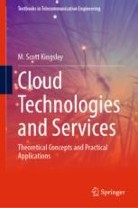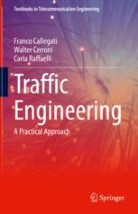
About this book series
Telecommunication and networks have evolved to embrace all aspects of our everyday life, including smart cities and infrastructures, healthcare, banking and businesses, manufacturing, space and aviation, meteorology and climate change, oceans and marine life, Internet of Things, defense, homeland security, education, research, social media, entertainment, and many others. Network applications and services continue to expand, virtually without limits. Therefore, specialized telecommunication and network engineering programs are recognized as a necessity to accelerate the pace of advancement in this field, and to prepare a new generation of engineers for imminent needs in our modern life. These programs need curricula, courses, labs, and textbooks of their own.
The IEEE Communications Society’s Telecommunication Engineering Education (TEE) movement, led by Tarek S. El-Bawab- the editor of this Series, resulted in recognition of this field of engineering by the Accreditation Board for Engineering and Technology (ABET) on November 1, 2014. This Springer Series was launched to capitalizes on this milestone. The Series goal is to produce high-quality textbooks to fulfill the education needs of telecommunication and network engineering, and to support the development of specialized undergraduate and graduate curricula in this regard. The Series also supports research in this field and helps prepare its scholars for global challenges that lay ahead. The Series have published innovative textbooks in areas of network science and engineering where textbooks have been rare. It is producing high-quality volumes featuring innovative presentation media, interactive content, and online resources for students and professors.
Book proposals are solicited in all topics of telecommunication and network engineering including, but not limited to: network architecture and protocols; traffic engineering; network design, dimensioning, modeling, measurements, and analytics; network management and softwarization; cybersecurity; synchronization and control; applications of artificial intelligence in telecommunications and networks; applications of data science in telecommunications and networks; network availability, reliability, protection, recovery and restoration; wireless communication systems; cellular technologies and networks (through 5G, 6G, and beyond); satellite and space communications and networks; optical communications and networks; heterogeneous networks; broadband access and free-space optical communications; MSO/cable networks; storage networks; optical interconnects; and data centers; social networks; transmission media and systems; switching and routing (from legacy to today’s paradigms); network applications and services; telecom economics and business; telecom regulation and policies; standards and standardization; and laboratories.
Proposals of interest shall be for textbooks that can be used to develop university courses, either in full or in part. They should include recent advances in the field while capturing whatever fundamentals that are necessary for students to understand the bases of the topic and appreciate its evolution trends. Books in this series will provide high-quality illustrations, examples, end-of-chapters’ problems/exercises and case studies.
For further information and to submit proposals, please contact the Series Editor, Dr. Tarek S. El-Bawab, telbawab@ieee.org; or Mary James, Executive Editor at Springer, mary.james@springer.com.
This series is indexed in Scopus.
- Electronic ISSN
- 2524-4353
- Print ISSN
- 2524-4345
- Series Editor
-
- Tarek S. El-Bawab
Book titles in this series
-

-
Integrated Data and Energy Transfer in Wireless Networks
- Authors:
-
- Jie Hu
- Kun Yang
- Copyright: 2024
Available Renditions
- Hard cover
- eBook

-
Elements of Digital Radio Receivers
- Authors:
-
- Vasliy Logvinov
- Sergey M. Smolskiy
- Copyright: 2024
Available Renditions
- Hard cover
- eBook

-
Cloud Technologies and Services
Theoretical Concepts and Practical Applications
- Authors:
-
- M. Scott Kingsley
- Copyright: 2024
Available Renditions
- Hard cover
- eBook

-
Traffic Engineering
A Practical Approach
- Authors:
-
- Franco Callegati
- Walter Cerroni
- Carla Raffaelli
- Copyright: 2023
Available Renditions
- Hard cover
- Soft cover
- eBook

Abstracted and indexed in
-
- SCOPUS
